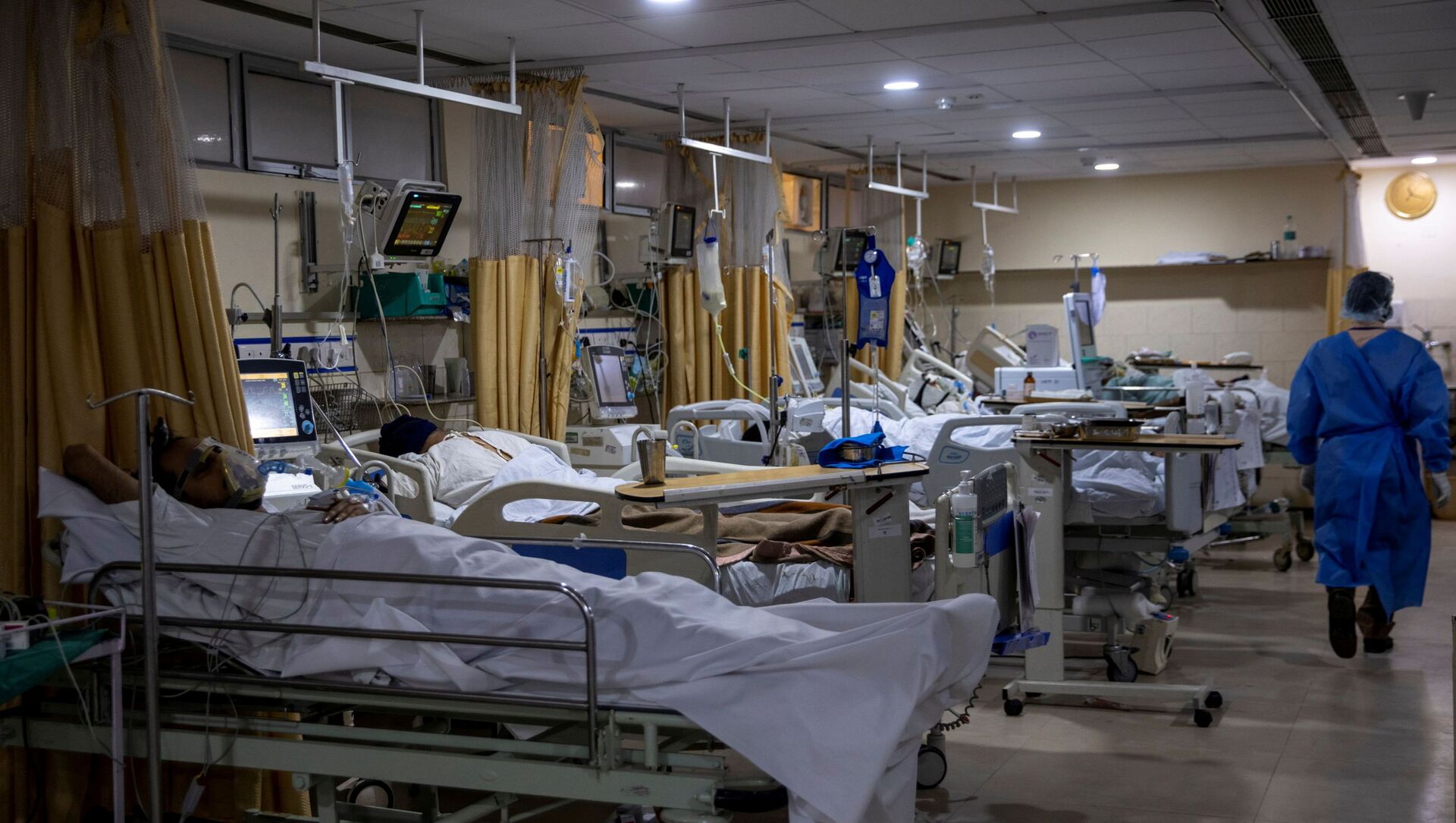Rising cases of Black Fungus, or mucormycosis, among those infected with or recovered from Covid-19 across India have worsened an ongoing crisis. On Tuesday it was reported that Delhi's All India Institute of Medical Sciences (AIIMS) is developing guidelines to treat the infection. The Indian state of Uttarakhand reported its first death by the Covid-triggered black fungus. Following the death, a 15-member expert committee of doctors assembled by the state government provided recommendations for prevention and treatment of the infection. Recently, AIIMS Delhi director, Randeep Guleria, said that the misuse of steroids is a major cause behind the spread of the Black Fungus disease.
Dr. Lancelot Pinto, consultant pulmonologist, with the P.D Hinduja Hospital & MRC says: "The infection carries a high fatality rate. The treatment involves aggressive use of surgery to excise or remove the parts that are infected and dead tissue around it and a good antifungal that is given intravenously. In the absence of this combination and the absence of timely intervention, the disease can have very high mortality."
To worsen matters, anti-fungal drugs like Amphotericin B that are prescribed for treatment are runing out of stock, leaving Covid patients and families uncertain as to whether there is a treatment.
Doctors said that symptoms of mucormycosis include headache, fever, pain under the eyes, nasal or sinus congestion, and partial loss of vision. Some may experience warning signs of coughing, shortness of breath, bloody vomit, and an altered mental state. Healthcare experts have pointed out that the Black Fungus infection is not new but is increasing, particularly among Covid patients, as the use of steroids elevates sugar levels and some medicines suppress patient immunity.
While explaining the nature of the infection, Pinto says: "Mucormycosis, which is being called the black fungus, is a fungus present in the air all around us. When you leave a slice of bread or fruit out in the open, the fungus you see growing on it after a day or two consists of “mucor” among other fungi. This mucor, which is inhaled by us daily when we breathe, does not affect individuals with an intact immune system capable of fighting or avoiding invasion by this fungus. When your immunity is suppressed because of drugs such as corticosteroids or other immunosuppressive agents such as tocilizumab in the context of covid or cancer chemotherapeutic drugs or other immunosuppressive drugs used for autoimmune diseases, your immunity is suppressed, and you become vulnerable to invasion by such fungi. This is compounded or worsened by high blood sugars, which are often seen among patients with diabetes, especially if they are on corticosteroids. Other immunosuppressive conditions such as chronic kidney disease or liver disease are also conditions in which one could be vulnerable to such invasive fungi."
The doctor also stated that, in addition to what might be apparent causes such as the use of high doses and prolonged courses of corticosteroids and immunosuppressive medications like tocilizumab, it must be pointed out that a viral infection alone may lead to an immunosuppressed state that can cause the invasive fungal infection.
"We have seen cases of aspergillosis, which is another invasive fungal infection that occurs post influenza despite individuals with influenza not being treated with corticosteroids. So a combination of the virus itself along with the immunosuppressive drugs may be contributing to this wave," Pinto says.
He observed that though the number of cases of Black Fungus is minuscule compared to the number of cases of Covid-19 in the country, these cases tend to be challenging to treat, as they involve a combination of aggressive surgery and antifungal medication and increase the workload on an already overloaded healthcare system.
On the effect of the Black Fungus on diabetic patients, Pinto says: "Most experts believe that there is a relationship between diabetes, high blood sugars, and the black fungus risk. Now, these risks can be minimized by keeping a close watch on blood sugar even in individuals who do not know that they have diabetes as steroids have the potential of increasing the sugars even in such individuals by keeping the steroid dose to what is recommended in Covid and not exceeding that dose and then by keeping the duration of treatment as minimal as possible and not giving prolonged courses of steroids. In addition, these individuals should be prioritized to receive covid vaccines. If they develop the disease, they are likely to develop a milder version of the disease, not needing steroids."
The doctor emphasizes that it is unlikely that non-Covid patients will see a surge of the Black Fungus as it is not transmissible. "It is an infection that reflects the immune status of the individual and not the pathogenicity of the fungus. The fungus is all around us, and our natural immunity protects us against it on a day-to-day basis. Only when the immunity is compromised are we likely to develop the fungus," he says.
Doctors are doing their best to prevent such cases by the judicious and rational use of corticosteroids, avoiding prolonged courses of steroids, and treating the condition as soon as there are signs and symptoms of the disease, he adds.



